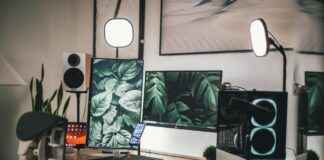FG Secures N20 Billion Foreign Investment for Local Production of Disability Assistive Devices
The Federal Government has announced that it has successfully secured a Foreign Direct Investment (FDI) of N20 billion to support the local production of assistive devices for Persons with Disabilities (PwDs). This development comes as a significant step towards addressing the high cost of imported devices and ensuring accessibility for all individuals with disabilities in Nigeria.
Dr. James Lalu, the Executive Secretary of the National Commission for Persons with Disabilities (NCPWD), revealed this groundbreaking news during an interview with the News Agency of Nigeria (NAN) in Abuja. He emphasized the importance of seeking investors to aid in the manufacturing of locally made assistive devices, highlighting the challenges posed by the escalating prices of imported devices.
According to Lalu, the NCPWD is dedicated to kickstarting the local manufacturing of assistive devices following the signing of a Memorandum of Understanding (MoU) with the foreign investors. He underscored the critical need for promoting local content in the production of assistive devices, noting that a majority of such devices in the country are currently imported, making them unaffordable for many individuals with disabilities.
The Executive Secretary further explained that by encouraging local manufacturing, there would be an increased demand for these devices, leading to economic growth and improved accessibility for PwDs across Nigeria. He specifically mentioned the production of wheelchairs, hearing aids, and devices for the visually impaired and hearing impaired as part of the commission’s focus on enhancing local innovation in the assistive technology sector.
Lalu also highlighted a recent innovative breakthrough in the field, where a talented individual in Kano developed a digital eye-glass that assists blind individuals in navigating their surroundings using sensor technology. The commission is eager to collaborate with such innovators and has plans to partner with key organizations such as the Bank of Industry and NASENI to bring these innovations to fruition within Nigeria.
In conclusion, the NCPWD is committed to leveraging the vast opportunities present in the country to propel the disability community into the technological era. The local production of assistive devices not only fosters economic growth but also ensures inclusivity and accessibility for all individuals with disabilities in Nigeria.














